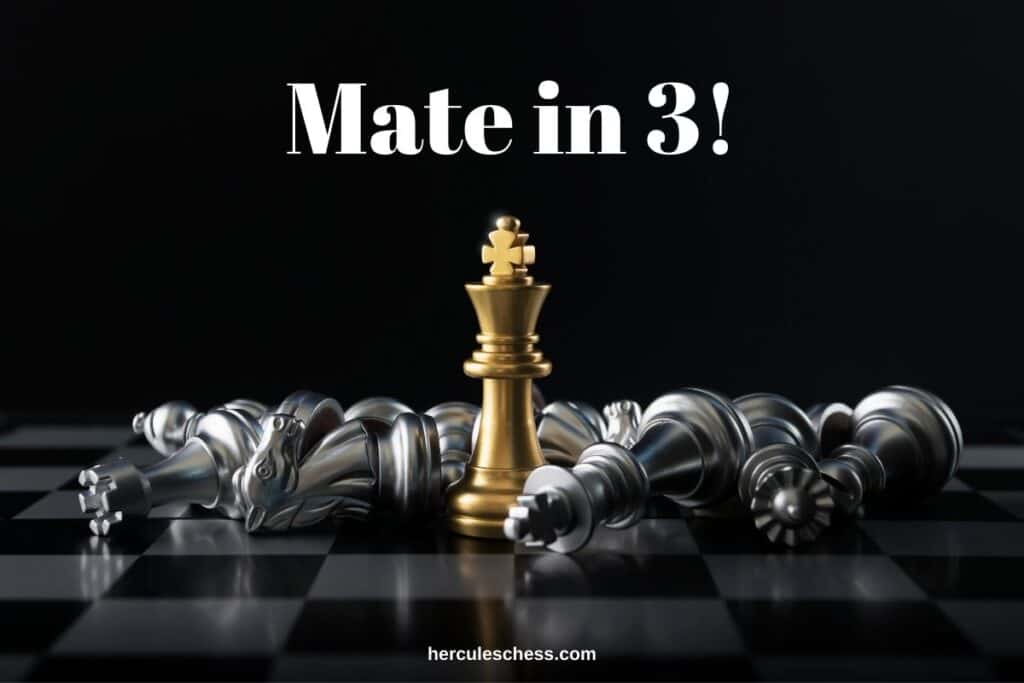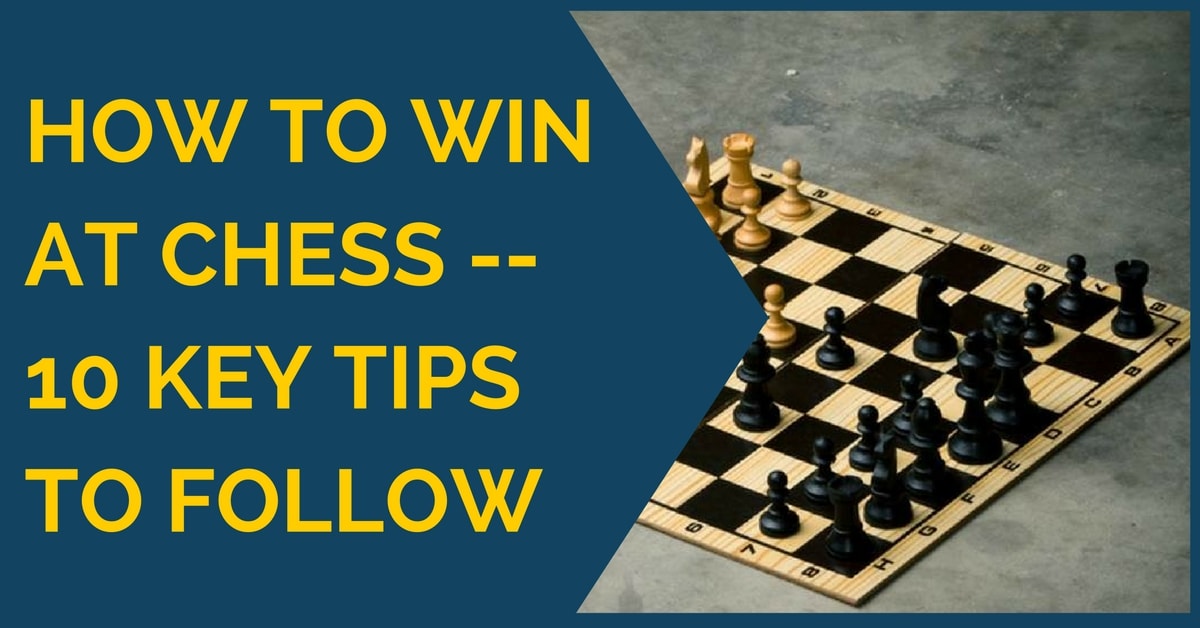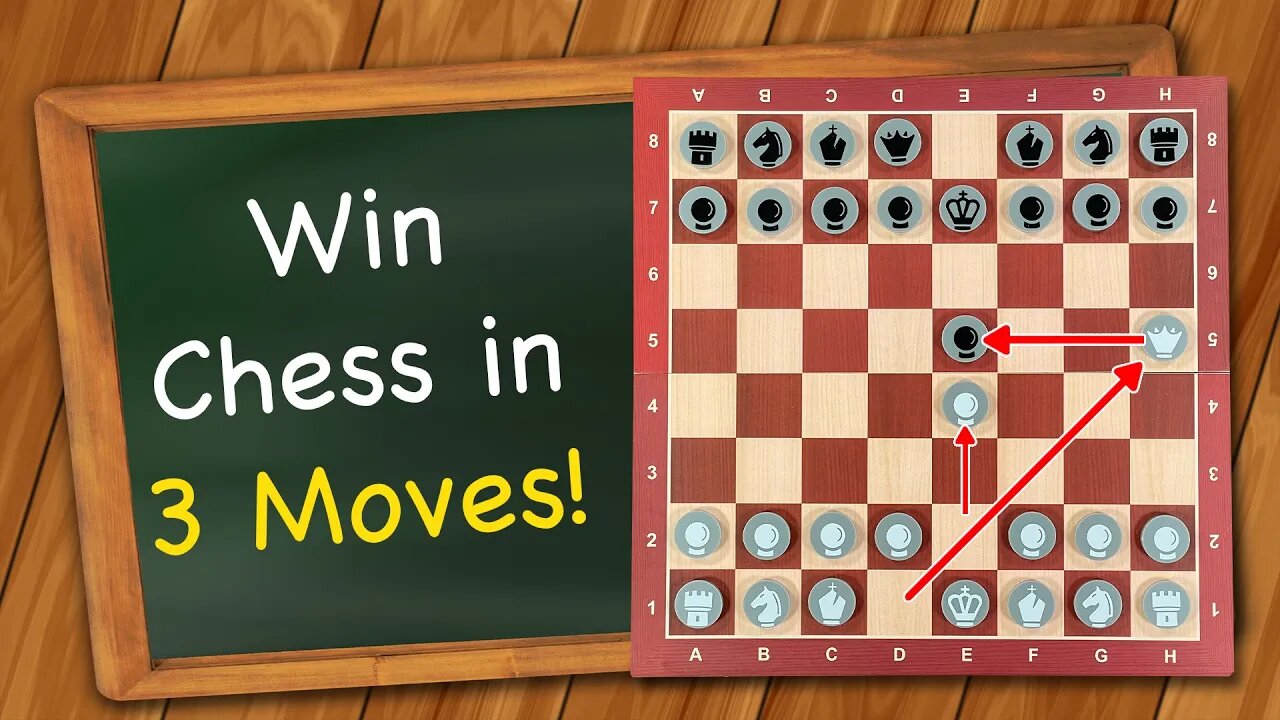
chess how to win in 3 moves short YouTube
Learn How to Win Chess in 3 Moves | Royal Chess Mall There are two ways to win at chess in 3 moves: One with capturing & the other one without capturing. Explore each of them in detail in this blog. Checkout Now! Skip to content 0 Wishlist Close menu Offers Imperfect Chess Items Special Sale

Chess How To win in just 3 moves? Checkmate! YouTube
Here are 10 of the fastest checkmates: Fool's Mate Grob's Attack (Fool's Mate Pattern) Scholar's Mate Dutch Defense (Fool's Mate Pattern) Bird's Opening (Fool's Mate Pattern) Caro-Kann Defense Smothered Mate Italian Game Smothered Mate Owen's Defense (Fool's Mate Pattern) Englund Gambit Mate Budapest Defense Smothered Mate Conclusion Fool's Mate

3 Special Moves in Chess YouTube
Follow one of these 3 approaches to win a game in just 3 moves! The Scholar's Mate The Fool's Mate The Fried Liver Attack In this article, we'll go over some of the most devastating ways to quickly end the game and claim victory. Imagine the look on your opponent's face when they realize they've been checkmated in just three moves.

How to Checkmate in 3 Moves in Chess 7 Steps (with Pictures)
Before you can master the art of the 3-move checkmate, you need to grasp the fundamentals of chess. Chess is a two-player board game played on a checkered game board with 64 squares. Each player starts with 16 chess pieces, including a king, a queen, rooks, knights, bishops, and pawns. To win the game, you must checkmate your opponent's king.

3 Ways to Win Chess Openings Playing Black wikiHow
1 Move your king pawn forward to e4. In both of these methods, the key piece for you is your queen. The queen is the piece that you are going to use to achieve the checkmate, so your first move should be to open up space for the queen to move diagonally. Moving the king pawn forward two spaces to square e4 achieves this (e4). [1]

Win chess only in 3 moves !! सिर्फ 3 चालों में चेस जीतिए !! YouTube
By understanding the basics of chess, including the importance of opening strategy, key tactics, and common openings, you can set yourself up for success on the board. The Power of the Three-Move Checkmate. While winning chess in just three moves may seem like a far-fetched dream, the three-move checkmate strategy can actually make it a reality!

How To Win At Chess In 3 Moves? Quick Game Strategy Hercules Chess
Move 3: Move Your Queen to H5 (QH5) This move brings your queen into a dominant position, putting direct pressure on the f7 square. The queen on h5, supported by your pawn on e4, forms a powerful attacking duo that threatens your opponent's weak f7 pawn and exposes their king to potential checkmate.

Chess Moves To Win In 3 Moves
How do you win a chess game? To win in chess, a player must checkmate their opponent. Checkmate happens when the king is attacked by another piece and has no way to escape. At that point, the game is over. But checkmate doesn't happen without preparation. To win a chess game you will need to do six things: Make Good Opening Moves

How to win Chess in 3 moves!
Hey, dear chess beginners! Your first chess match can be both exciting and nerve-wracking, but don't worry - we've got 5 key tips to help you secure victory in the game. 1. Formulate a Clear Plan Before the game begins, it's crucial to devise a clear and feasible plan. Consider how to control the center, protect the king, coordinate your pieces, and anticipate your opponent's possible moves.

How to Achieve Checkmate in 3 Moves Chess YouTube
Ready to embark on this journey? Table of Contents Basic Chess Principles and Rules Explanation of Specific Moves (Pawn, Queen, and Bishop Movements) Winning Chess in 3 Moves: Two Common Strategies Winning Chess in 3 Moves: Two Common Strategies Explanation of the Scholar's Mate: Step-by-step Guide on How to Apply It

checkmate in 3 moves in chess Learn Chess game in hindi YouTube
23 August 2023 Are you tired of playing endless games of chess without ever winning or making progress? Do you want to impress your friends or defeat your opponent in just three moves? Look no further! Winning at chess in three moves is not a myth, but a real strategy that can be learned and applied with practice and skill.

How to win at Chess in 3 moves? Explained in Simple Steps
The best way to win chess in three moves is to use the Fool's Mate strategy. This involves moving your pawn to the fourth rank, then your knight to the fifth rank, and finally your queen to the seventh rank. This will put your opponent in checkmate in three moves.

best trick for win the chess in 3 move YouTube
1. Move Your Pawn to e4: This opens up the path for your queen and bishop to attack your opponent's king. 2. Capture the Pawn on f5: This provides a material advantage and prepares to check on h5 with your queen. 3. Move Your Queen to h5 and Checkmate: This delivers a check to the black king, so the black king can't escape. Thus, checkmated.

How to Win at Chess (with Pictures) wikiHow
To win a chess match in just three moves playing white, one has to start by moving the e-pawn to the e4 square/tile. In reply to this, let us presume black would play its e-pawn to e5. Subsequently, white responds by moving the queen piece to the h5 block. Altough rare, but there are ways to finish a chess game early.

Chess 3 Move Win Beat ANYONE In Chess in 3 Moves! YouTube
There are two ways to win at chess in 3 moves: One with capturing and the other without capturing. We will take a look at both of these strategies. Once you learn and apply these strategies, your next game of chess could take quicker to play than setting up the chessboard! Here is how to win at chess in 3 moves: Move your King's Pawn to e4.

How to Win at Chess (with Pictures) wikiHow
1. The Fool's Mate One of the quickest ways to secure victory is by executing the Fool's Mate, which is considered the fastest checkmate in chess. The Fool's Mate can be achieved in just two moves by White. Here's how it unfolds: f3 - White's first move. e5 - Black's response. g4# - White's second move, delivering checkmate.